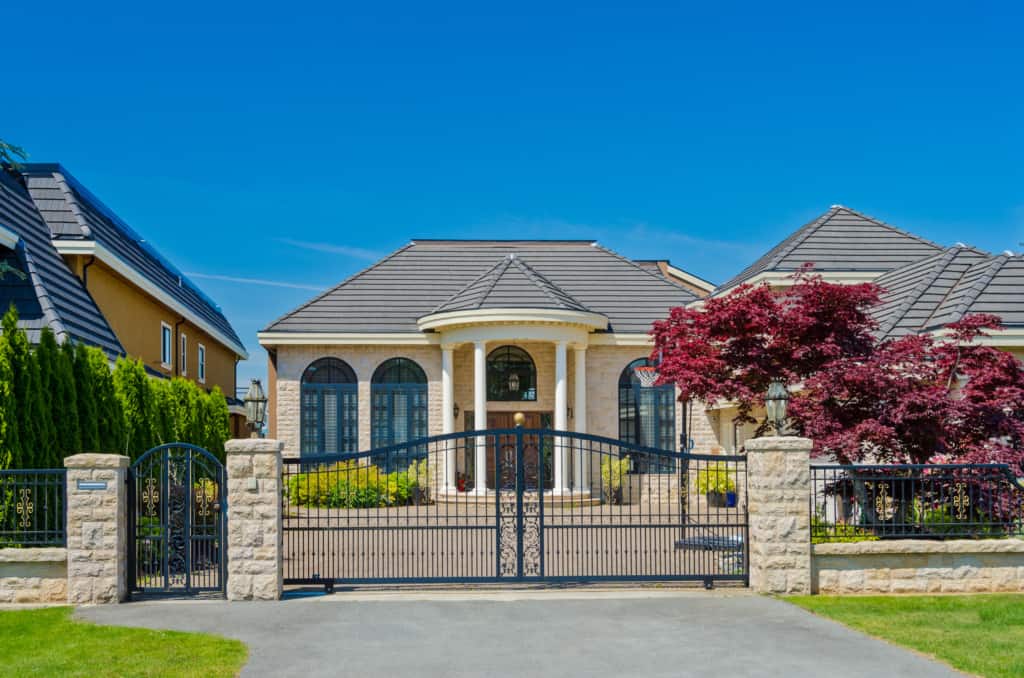[ad_1]
Vineyards are often sprawling properties that require a secure perimeter to protect the vines and keep intruders out. Automatic gates are a popular choice for vineyard owners as they offer convenience, security, and add an element of sophistication to the property. However, choosing the right automatic gate for your vineyard can be a daunting task, especially if you are new to the process. In this article, we will guide you through the factors to consider when choosing the best automatic gate for your vineyard.
1. Material
The first thing you need to consider when choosing an automatic gate for your vineyard is the material. There are several options available, including wood, aluminum, steel, and wrought iron. Each material has its own advantages and disadvantages, so you need to choose one that suits your needs and budget.
Wooden gates are popular for their natural beauty and warmth. They are ideal for vineyards with a rustic or traditional aesthetic. However, wooden gates require regular maintenance, and they are not as durable as metal gates.
Aluminum gates are lightweight and rust-resistant, making them a popular choice for vineyards located in humid or coastal regions. They are also low-maintenance and can be painted to match the color of your property. However, aluminum gates are not as strong as steel or iron gates.
Steel gates are strong and durable, making them an excellent choice for vineyards that require maximum security. They are also low-maintenance and can be customized to fit any design. However, steel gates are susceptible to rust and require regular maintenance.
Wrought iron gates are the most elegant and durable option. They are ideal for vineyards with a classic or upscale aesthetic. Wrought iron gates are also low-maintenance and can be customized to fit any design. However, they are the most expensive option.
2. Type of Gate
The second factor to consider when choosing an automatic gate for your vineyard is the type of gate. There are two main types of automatic gates: swing gates and sliding gates.
Swing gates are the most common type of automatic gate. They are ideal for vineyards with a wide entrance and plenty of space. Swing gates can be single or double and can be customized to fit any design. However, swing gates require more space to operate and can be affected by wind.
Sliding gates are ideal for vineyards with limited space or a steep slope. They operate horizontally and require less space to operate. Sliding gates can also be customized to fit any design. However, sliding gates require more maintenance and can be affected by gravel or debris in the track.
3. Size
The size of your automatic gate will depend on the size of your entrance and the type of gate you choose. Swing gates can range from 10 to 24 feet wide, while sliding gates can range from 8 to 40 feet wide. It is important to measure your entrance accurately to ensure that you choose the right size gate.
4. Security Features
The security of your vineyard is paramount, so it is important to choose an automatic gate with the right security features. Some security features to consider include:
– Automatic locking: This feature ensures that your gate is always securely locked, even if you forget to do so manually.
– Intercom system: This feature allows you to communicate with visitors before allowing them entry into your property.
– CCTV system: This feature allows you to monitor your gate remotely and record any suspicious activity.
– Keypad entry: This feature allows authorized personnel to enter your property using a code.
5. Power Source
Automatic gates require a power source to operate. The most common power sources are electricity and solar power. Electricity is the most reliable power source, but it can be expensive to install and maintain. Solar power is a more cost-effective option, but it may not be suitable for areas with limited sunlight.
FAQs
1. How much does an automatic gate cost?
The cost of an automatic gate depends on several factors, including the material, type of gate, size, and security features. On average, an automatic gate can cost anywhere from $1,500 to $10,000 or more.
2. How long does it take to install an automatic gate?
The installation time for an automatic gate depends on the type of gate and the complexity of the installation. On average, it can take anywhere from one to three days to install an automatic gate.
3. Do I need a permit to install an automatic gate?
The requirements for permits vary depending on your location and the type of gate you are installing. It is important to check with your local government to determine if you need a permit.
4. Can I install an automatic gate myself?
It is not recommended to install an automatic gate yourself unless you have experience in gate installation. Automatic gates require specialized tools and knowledge to install properly, and any mistakes can compromise the security of your property.
Conclusion
Choosing the best automatic gate for your vineyard requires careful consideration of several factors, including the material, type of gate, size, security features, and power source. By taking the time to choose the right gate, you can enjoy the convenience, security, and sophistication that an automatic gate can provide.
[ad_2]


